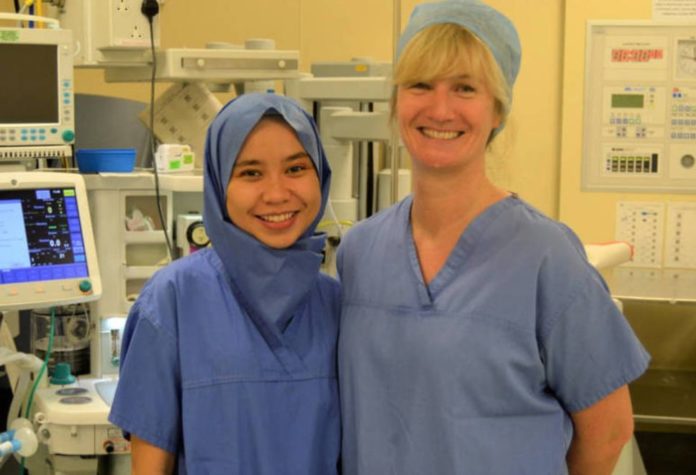They want to extend the practice to public hospitals across the country to control possible infections in patients
Farah Roslan is an intern at the Royal Derby Hospital in central England. She is Muslim, so she wears a hijab with which she covers her head every day, just as her religion asks. However, after spending many hours inside the hospital, Farah thought that the handkerchief she uses daily could be a source of infections for her patients.
For this reason, she explained to the management of his hospital the possibility of placing disposable headscarves, in the same way, that there were already other elements of wearing and throwing as pyjamas, gowns, etc. And her idea was well received, so much that it has become the first hospital in the United Kingdom to offer it to its workers, as they have explained in their social networks.
https://www.facebook.com/UHDBTrust/posts/2540946212849057
In an interview with BBC, Farah acknowledged that this situation had caused her a problem at the hospital: “I had been wearing the same headscarf all day, something that was obviously not clean and ideal. I didn’t feel comfortable taking it away, so, respectfully, they took me out of the operating room due to infection control”.
Islam calls on women, from puberty, with a garment that covers their head and chest when in the presence of adult men who are not immediate family. That is why Farah never gave up on carrying that identity sign during her hours at the hospital.
However, she wanted to find the balance between “the dress code due to faith and passion” she feels for working in an operating room. The answer was found in Malaysia, the country from which it originated, where she tested several fabrics and different designs before exposing her idea to the hospital management. Now, this project can be adopted by other public and private hospitals in the United Kingdom.
Surgeon Gill Tierney, mentor of Farah Roslan during her training, is convinced of the success of this idea: “We know that it is a topic that is latent in operating rooms throughout the country and I do not think it has been formally addressed. It has not cost much money and I hope the effect is huge.” Farah acknowledges that she is “very happy” and wants more hospitals to adopt her project.
